Fanfiction Help, Tips, Prompts And Ideas
Fanfiction help, tips, prompts and ideas
I planned on making this a private post just to help me find all the links and wonderful help made by these wonderful people but it can be helpful for other too to have it all in one place.
But if the creators of these would like me to take down/private the post please let me know and I will, no problem ^^
Dialogue Promts, tips, ideas; everything:
dumplingsjinson's Dialogue promts[They're great with so many different dynamics]:

Tips on writing characters without faces:

Describing emotions internally and externally:

Writing recourse masterlist:
Body language basics(smiles, eyebrows, head positions:
List of body language phrases (positions, reactions, movements like "he arched his back"), divided by body parts:
agirlnamedjana's master dialogues/scenes/dynamics promt list:
And also her masterpost on how to write/motivation/tips:
More Posts from Lune-versatile and Others
In 2006 a high school English teacher asked students to write a famous author and ask for advice. Kurt Vonnegut was the only one to respond - and his response is magnificent: “Dear Xavier High School, and Ms. Lockwood, and Messrs Perin, McFeely, Batten, Maurer and Congiusta:
I thank you for your friendly letters. You sure know how to cheer up a really old geezer (84) in his sunset years. I don’t make public appearances any more because I now resemble nothing so much as an iguana.
What I had to say to you, moreover, would not take long, to wit: Practice any art, music, singing, dancing, acting, drawing, painting, sculpting, poetry, fiction, essays, reportage, no matter how well or badly, not to get money and fame, but to experience becoming, to find out what’s inside you, to make your soul grow.
Seriously! I mean starting right now, do art and do it for the rest of your lives. Draw a funny or nice picture of Ms. Lockwood, and give it to her. Dance home after school, and sing in the shower and on and on. Make a face in your mashed potatoes. Pretend you’re Count Dracula.
Here’s an assignment for tonight, and I hope Ms. Lockwood will flunk you if you don’t do it: Write a six line poem, about anything, but rhymed. No fair tennis without a net. Make it as good as you possibly can. But don’t tell anybody what you’re doing. Don’t show it or recite it to anybody, not even your girlfriend or parents or whatever, or Ms. Lockwood. OK?
Tear it up into teeny-weeny pieces, and discard them into widely separated trash recepticals. You will find that you have already been gloriously rewarded for your poem. You have experienced becoming, learned a lot more about what’s inside you, and you have made your soul grow.
God bless you all!
Kurt Vonnegut

Nimbus Publishing and Vagrant Press Goose Lane Editions Breakwater Books Ltd. The Acorn Press Bouton d'or Acadie Canada Council for the Arts | Conseil des arts du Canada
A Quick Guide to Foreshadowing!
Foreshadowing - a warning or indication of a future event. In literature, it is when an author provides readers with hints or suggestions as to what will happen later in the story.
Foreshadowing can be used to create tension and set expectations as to how the story will play out. Can inspire reader emotions–suspense, unease, curiosity,
Types of Foreshadowing
Chekhov’s Gun The author states something that they want you to be aware of for the future - in the eponymous example, a gun hanging on the wall in an early chapter will be used later.
Prophecy A statement to character/ reader about what will happen in the future. Although sometimes unclear at first, they normally become true by the end.
Symbolism A more abstract way of foreshadowing, often shown through things like objects, animals, images and weather. Often foreshadows change in mood, luck or behaviour.
Flashback/Flashforward When the author needs the reader to know something that happened that doesn’t fit with the current timeline. Often there will be hints/clues for things that the writer wants you to remember/pick up on later.
Red Herring A type of foreshadowing that deliberately misleads the reader. False clues such as a character finding another suspicious, etc., may lead you to believe one thing when, in reality, they will have done nothing wrong
Tips and Tricks for Effective Foreshadowing!
Don’t foreshadow too obviously - signpost rather than state! Arouse suspicion, but keep them guessing!
If you make a promise, keep it!
The bigger the twist, the earlier it should be foreshadowed! Foreshadowing too soon is essentially a spoiler
Keep foreshadowing in moderation
Use beta-readers - sometimes our foreshadowing feels so obvious to us but it may not to other people who aren’t as close!
how to create a high fantasy politics reference doc (with a template and guide!)
political fantasy is an extremely fun genre to write in, that is, until you have to actually write the politics. in this semi-requested guide, i'm going to explain to you how i virgo-planned my way to a horribly detailed—though also horribly helpful—political reference doc for my one and only wip, a treatise of tyrants and thieves.
if you too would like to use a similar format to what i did (though consequently you will have to change it to fit your own worldbuilding), i have a template for dropbox paper right here.
as a sidenote, i do recommend already having built up a decent amount of your world before jumping into this; this document is meant to help flesh out pre-existing content in such a way that is really hard to do with a wip that's just starting out.


setting up.
Generally speaking, when I first began writing this doc, I was mostly doing so in relation to the government of the country wherein my WIP takes place and its relationship with other countries (or nations!), with its own people, and within itself. This then lead to my three, aptly-named subcategories; External, Internal, and Personal Relations (I'm very creative as you can see.)
These three subcategories became my main headers, and all of my organization took place within a Dropbox Paper doc—as I am partial to the cleaner interface and very easy creation of a table of contents—but using Word or Google Docs works just as well. With that, and a lot of pain and suffering in the form of preexisting worldbuilding, I started to flesh all the info out.
You should note that the country AToTaT takes place in a country called Vsyhna (vuh-sen-uh) and its government is referred to as the Dual Courts. This is also a forewarning, for the fact that I will probably be talking about my own worldbuilding quite a bit, if not only for purposes of giving proper examples!
So without any more notes from me, let's properly jump into this thing.

external relations.
The external relations between the Dual Courts and all the other governments within Ashvayr (the continent that Vsyhna is a part of), of which there are eleven, can be described in one of the following ways:
✅ = Allies
⚠️ = Allied by treaty, with tensions
❎ = Not allied, but no real tensions
✴️ = Not allied, but with tensions
⛔️ = Enemies
All of these relations should be taken with a grain of salt, and also adapted to fit your worldbuilding, of course, but as a general consensus, most governments will have one of those relationships with another. The emojis are used so that it's easily identifiable (I'm also insane, let's not forget), but emojis don't replace discussion.
Within each section, I discussed the relationship between these governments but also gave a quick list of bullet points that explained important moments in recent history that have created those tensions—or lack thereof—the current political state in each country, certain cultural tidbits, and cultural differences between Vsyhnians and others.
Generally, this isn't the stuff you want to get lazy with, and while it is fine to say something like "Oh they live across the world my mc's won't know this." It's better to have the ability to even subtly suggest other people, cultures, or ideologies. It deepens your world, and more than this, can be super interesting to readers. You should also note that this information should affect your characters in some way, otherwise the politics are going to be very boring (as they don't relate to anyone.)
This alternated between something as complex as gender politics, to things as simple as cuisine or trade goods. Indeed, you don't have to cover every base with these descriptions, arguably, this is the part you should spend the least amount of time on (unless you're braver than a U.S. marine and do, in fact, wish to take on international relations), but you should cover every important base.
For a slightly more simple example, let's look at the Empire of Sansryn. I wrote: "The Empire of Sansryn ⚠️ is an archipelago that is composed of two main ethnic groups; the Sansrynians, who occupy the northern half of the islands, and the Tarimese, who occupy the southern half of the islands." Then continued to briefly describe the relationship between Sansryn and Tarim.
The next two paragraphs were designated to a) their relationship with Vsyhna (which as you can see with the ⚠️ emoji is not great) and b) their relationship with other countries around them, not forgetting why it's so poor in the first place, which, spoiler, has to do with a number of social issues.
Also in the case of Sansryn, one of my side characters is half Sansrynian, which is something I noted mostly for the purposes of clarifying this character's relationship with this part of their identity and culture.
Realism is, quite frankly, optional in fantasy (or rather, you define what "real" actually means) but I do tend to strive for realism within AToTaT's politics, if not only because it's fun. When delving into (rightfully!) complex issues—like ethnic conflict for example—it's necessary to do your homework (and hire sensitivity readers afterward) if it's not a topic you are familiar with or related to. However, that exact process is not something I will be discussing in this post and I encourage you to do your own research.
You also want to take into consideration how these countries are related to each other. For me personally, I almost exclusively did this for the two current conflicts (i.e. actively disputed treaties, current armed conflicts) within the world, but I did briefly touch on how those relationships came to be, as you can see above.

internal relations.
Internal relations is where things start to get more complex and also more specific to the world my WIP takes place in. For this section, you need to have already realized a great deal in regards to major political institutions (if you have them!) and most importantly, cultural attitudes.
I split my internal relations section into seven sub-sections, which included: Social Cleavages, Justice System, Garrison, Navy, Cults vs. Church, Crime, and Trade.
For a Wikipedia definition, a social cleavage is "a historically determined social or cultural line which divides citizens within a society into groups with differing political interests, resulting in political conflict among these groups." AKA sexy, sexy plot tension.
The social cleavages of Vsyhna mostly revolve around social class (in-world called "rank"), an urban/rural divide, and nationality, which I note as being "considerably not a social cleavage." It appears I should have listened to my Wikipedia-defined advice. That said, rank was described at length for its importance to the religion, general structure within government, linguistic flavor (dialects!), and laws. It's one of my largest social themes and connects to almost everything within the book, including the magic system.
Speaking of magic, as I didn't mention it within my seven sub-categories above, I should note that however magic works in your society should also be included. In my case, it's heavily intertwined with religion and social class (access to the information that allows people to use magic, I mean) and so I didn't feel the need to clarify its role with an entirely new section, but how you do this is entirely up to you. It's also up to you to include a magic system, as in reality, you don't necessarily need one. I also have a completely separate Dropbox doc for most of these things anyway (re:knowing stuff before you jump into this.)
The justice system is something I find is often not immediately thought about when it comes to fantasy, but from a very general point of view, this also encompasses subjects such as law codes, the punishment for breaking those codes, and what trials look like, if you have them. This can tell us much about your culture, what they value, and more importantly, how much they value it.
For example, continuing with my themes of classism, sumptuary laws are a large part of Vsyhnian society, i.e. laws that forbid the usage of certain goods to lower classes. Given that it's illegal for someone of lowborn status to have, let's say silk, it creates a) a prime criminal market (trading "illegal" goods), b) a need to crack down on this market, and c) further severs the relationship between upper and lower classes, given that the fairness of the justice system is then put under scrutiny. Indeed, the fact that it's the Church that controls the justice system, you have a similar tension in the department of faith, and I haven't even begun to talk about how the treatment during trials differs.
I often find military to be the greatest emphasis within quite a lot of political fantasy, that being, the mobility of large land armies or prowess at sea. For me personally, I find this to be rather boring (both on accounts of reading and writing) so I did come at this with a lens of interest in the personal relationships of these people and actual organization within the military. Mostly, I used what I knew from external relationships and current conflicts to create something that could be used later on if I needed it, as it's not heavily featured (at least not in the first book!) Treaties, blockades, relationships between commanding officers, and relationships with piracy.
On notes of realism, I went with the very classic These Island People Have A Great Navy, as, historically, they tend to.
We should all know by now how important religion, or lack thereof, is in epic fantasy, and while I could go on about this for several hours, this is a political relations doc, so I focussed on the tension between sects of the main religion. How different leaders within the religion interacted with other members of government is a topic for personal relations, however, if not only because they're heavily featured, and there are several (about nine actual descriptions.)
This culminated by way of cults vs. the Church, differing ideologies within fundamental concepts of the religion, and generally how they're seen by Vsyhnian society (and—you guessed it—social class.) As an example, I wrote, "All of these organizations consider the Holy Book Rovnokh to be canon and true within their faiths, though it is the Codex Drkha that is often disputed in validity. This is the result of their own written dogma, which may convey entirely different personalities and oblation tales, or emphasis on a very specific aspect of the mortal godchild then how they are presented in the Codex."
It is important to consider, before even delving into differences, what the fundamentals of each sect or division within your religion are speaking on. Think of the historical context that may have brought about such a concept, or even fuzzy lines within canon texts. Here's another example, "The seventh mortal godchild is not mentioned within the Codex and therefore not considered a valid mortal godchild, though Vrah’s appearance in the Holy Book and the Children of the Bone’s own text—which are older than the Codex—say otherwise. 'Vrah' is more used as a term to describe magic and not at all a person, when it is mentioned in the Codex."
Crime and trade, as you can imagine in a society plagued by rules that dictate trade—and in many cases make the trade of certain items a crime—is quite important. As I hinted earlier in the justice system section, the "illegal" trade of certain goods, which goes against sumptuary laws. That said, crime happens for a number of different reasons, and I took the time here to think about partner organizations, illegal magic producers, and gangs.
Crime can actually be an excellent tool of worldbuilding, if not only for the fact that it is so specific to the country and history it resides in. Why does something need to be stolen? Fabricated? Spied on? And who is getting the most out of it?

Trade was something I rather lazily did with the above Vsyhnian roadmap—I don't plan on discussing economics at all, nor following merchants as they move goods though the country.
I want to note once more that all of this is extremely relative information; what you need to write about to create political tension is entirely up to you and your story. As a general bit of advice, however, it is helpful to ensure that everything can come back around to your characters—if not now, then at some point within the series or story as a whole. Politics can become boring very easily, especially when not personal.

personal relations.
For our final and most interesting section, I did two, somewhat important things before actually writing anything out; that being creating two charts. The first is a political alignment chart, the second is a chart that defines the different positions of government. While again, this is totally relative, this is what I came up with:

Take the time to think about and research other forms of government, what each "branch" might do, and how they do it. More importantly though, think about how the culture and religion would, can, or do influence the government, and how the government has responded to such action. Look to history especially!
The charts allowed me to very easily place my main characters, their families, and all the previous groups of people (gangs, cults, social classes) into categories that can then, more or less, directly define their relationships with one another. This made the process that I will now describe to you a little less tedious.
I divided this category into three sections: Nobleborn Houses (that being houses of great import and high rank), the Prelacy (leaders of the Church), and Others of Note.
There are ten nobleborn houses, however, I only did mass amounts of details for five of the most important. I should also note that two of my four main characters are a part of two of these houses, and it's for that reason that I felt I needed to be as in-depth as possible. For Houses, the organization went something like this:
House Name:
A general description of the house, its history, and how it rose to power, as well as what they generally control within the government or country and how long they've had this position.
Try to be as diverse as possible within these descriptions—cover a lot of different bases and don't be afraid to do it! A family rising to power as a result of the money they, for example, gained from growing roses says a lot about the culture and commerce of a particular country.
Public Opinion:
What the people think of this family, given all social standings and occupations. Naturally, when I say all, I don't mean think about what every carpenter thinks of the royal family, I just made sure it was a general consensus!
Opinion of the Other Five Houses:
This, I tended to keep as short as possible, but like the external relations above, I wanted to know what and how the relationship was what it was. For several, I already had an idea, but for...so many more I did not (hear the pain in my voice? there's pain in my voice.)
Opinion of the Remaining Houses:
Shorter than even short as possible, but the same idea as before.
Main Members:
Probably one of the more important sections; I listed out all the members of the main part of the family, that is, the immediate family of the person involved in government (or main character.) This not only defines your side characters—of which there are bound to be many—but also clarifies the conflicting motives of the people in charge. And they should conflict, hopefully with the motives of your main characters. Extended family was discussed when important, such as prominent aunts, uncles, or grandparents, but for sake of simplicity, lengthy descriptions were kept for parents and children.
I also included charts after this about minor houses sworn to these noble houses, but to be completely honest, I didn't fill out most. That said, I did repeat this process for all five houses, and the good news, is that after you talk about the relationship with one of the other five, you're done completely, so, yay one less bullet point each time. Also, don't feel pressured to have a name for everyone or everything! In fact, I mostly skip over names of people unless I really have to know them in text, far more characters are simply [BROTHER] or [PARENT], though this could be a laziness thing. Or a conlang one.
A worldbuilding note: I also included house colors, sigils, and heads in this instance, as well as their connection to certain magical oaths.
For the remaining five nobleborn houses, I only listed house heads, sigils, and colors, if not only because I described their relationship with everyone else, earlier. That said, I also included house heir and extra notes, if I needed them.
The Prelacy was organized slightly differently, as important members of the Church, they don't necessarily have family members interacting with them. Instead, I focussed on backstories, their relationships with the Arkan (the monarch, sort of), and once more, motive (and personalities, given that I don't give side characters a full oc profile.)
As shown in the chart above, there is one High Vokhsv and six Vokhvs that work under them; the former had a more in-depth section of text, however, the six got just about as much detail as the lesser five noble houses.
My last and final section was short and sweet (thank God) and covered two topics very briefly, that are so world-specific I won't even bother explaining them. That said! That's what this section is for; anything else that you might have missed.
I won't lie, the personal relations section was probably the most time-consuming part of this entire doc, but in the end, it did pay off. The entire thing took about from the 22nd of February to the 18th of April, and came out to around 30k. Do I suggest you also write this much? Not unless you feel like you need it. I don't really plan out plot, so for me, this was my plan, hence the length and detail.
Thank you so much for reading! I hope you enjoyed this far too long breakdown of my political reference doc of my WIP, A Treatise of Tyrants and Thieves and good luck with your own process, writing, and research <3

references.
Some links I found helpful:
The template link, once more ($1).
Brandon Sanderson's 2020 creative writing lectures (YouTube)
Designing a fantasy legal system (Worldbuilding Stack Exchange)
Unpacking Folk Tales/Motif Index (Uni. of Alberta)
Real Inequality in Europe since 1500 (Journal, PDF)
Diplomacy (Wikipedia)
Public Diplomacy in Early Modern Europe (Journal)
The Spy Chiefs or Renaissance Venice: Intelligence Leadership in the Early Modern World (Oxford Brookes Uni., PDF)
Branches of the U.S. military (SOU)
those who were interested.
@chovansjtsjina @zielenheil @lord-fallen @ninazeniks @viesceral @introverteddumbass @wisteria-eventide & anyone else, feel free to reply, send an ask, or dm me about questions!
Dawn do u have any advice for people starting skz writing blogs?
Oh! I definitely do! I’ll put them under the cut uwu <3 These are all tips I wish I knew, ranging from garnering readers to how to deal with other happenings. <3
!!!; this is a fairly long post! also, I am no way qualified enough to be giving advice, these are just things I've learnt in my term of experience.
#1: Write what you want to see on this platform, basically build a niche for yourself.
So this is a pretty obvious and often said point, but write what you want to, and when you want to. If it's domestic AUs that you're the most comfortable with, write that! Of course, you can dabble into new genres to discover what your other interests are, but don't for yourself to write something just because it's a popular topic. When people find a fic of yours that they like, they'll most likely go to your blog expecting the same kind of stuff. <3
#2: Develop your own distinct style, be it in your blog, in your writing in your layout, etc.
Make your blog's aesthetic/layout as distinct as possible, so that it's identifiable. This just gives a sense of uniqueness to your blog, which oft attracts readers. Ofc by this, I don't mean you need to be a master at photoshop/editing to create amazing aesthetics — you can just use simple elements and blend them together in a way that stands out well. Personally, if I'm to be honest, aesthetics, general neatness means a lot to me. I usually wish for a blog to be de-cluttered have a good and efficient way of navigation without having to search through or dig in a lot myself.
#3: Use tags! On all of your posts.
Like I said in the previous section, I wish for a new blog I'm going through to have a good and efficient way of navigation. Use tags, not just on your writing, but all your posts. This can facilitate easier viewing of same posts grouped under one tag, plus if someone prefers to not view something in particular, they can choose not to by blacklisting. Untagged posts are honestly a huge pet peeve of mine dihfuyrharieuhr. That being said, use the correct tags on your post! This post has a good note on how to garner readers as well as tagging.
#5: It takes time for you to gain attention for your work, and it takes time for your writing style to develop into something unique.
This is honestly something I wish I knew when I started writing. I'd see all these blogs get so much interaction and anons and notes on their writing, and while I was happy for them, it made me feel insecure that maybe I wasn't as good enough for them...? fast forward to six months later, I had nearly the same amount of interaction as they did. So it's really all about working towards your way to create a distinct writing style, all whilst improving yourself. Don't be demotivated when you don't get interaction at first, because it takes time for your style to be recognizable and it takes a while to improve, so as and when you write, you'll get better and better! <3
#6: Interact with other writers' writings!
This is also something I wish I knew. interacting with other writers is a way to make new friends, plus give your blog some exposure. of course, that's different from clearly exploiting a blog's status for follows. Make friends with other writers, and reblog their writings (ofc, only if you read them and you liked them, don't force yourself to)! 99% of the time, whenever someone leaves feedback on my writing, I check their blog, and if their writing is something I like, then I follow them! So yeah, this site literally thrives off interactivity, so don't be afraid to interact with writers!
#7: When you're posting your writings, make them clean to look. They should be pleasant to the eye.
What I mean by this is that your layout should not be too compact, hard to read, or straight up painful to look at. Don't use those 𝓈𝓌𝒾𝓇𝓁𝓎 ass fonts, because half the time, they won't render on most devices, and they're often horrible to look at + impossible to read for someone who uses a screen reader. Don't use tinie font on your posts for the same reason.
And! Banners! They're a great addition to a fic, and make it attractive to look. I can't tell you how much a good, well made banner can affect my view on whether I want to read the fic or not. However, i have some negative points about it too. Don't make banners if you don't know how to, only for the sake of making them. This doesn't mean you shouldn't experiment, hell, my first banners were total crap. It of course takes time to learn editing (provided you have an interest in it), but my point is: a banner is used to attract attention to your fic, yet if you have a bad-looking banner, bad layout, bad presentation, (coming from me) I tend to not want to read the fic.
I think a lot of people don't tell new writers that layouts are very important. Most of the stuff is covered in that post I liked, but having a distinct, unique, neat (emphasis on neat — you don't need fancy banners and fonts, just make sure it's not painful to look at) layout really helps. Don't use overly contrasting color combos like this and make sure it is neat, and pleasant to look at. You want to attract attention to your fic, not make it hard to read. While banners and aesthetic photos are not very important, a neat lay!!!!!!out is very essential, to increase your reader count and actually ensure that your fic is readable.
#8: Just know that the number of notes your fic gets is all in your luck.
Just because you get less notes doesn't mean you're any less of a writer! Hell, I know so many phenomenal writers that deserve so many more notes. Your note count can depend on several factors, including (but not limited to) your posts not showing up in the tags, the genre you've written is not a very popular genre (that doesn't mean you shouldn't write it! There will be biases towards genres in the fandom, but write what you want), or the fact that this site is often treated like instagram. So if you get less notes on a fic, don't be demotivated! You have every right to ask for more interaction on your fics from your followers, but don't let it think you're any less of a writer.
That's it! If you have any specific doubts, feel free to send another ask, or a dm! <3
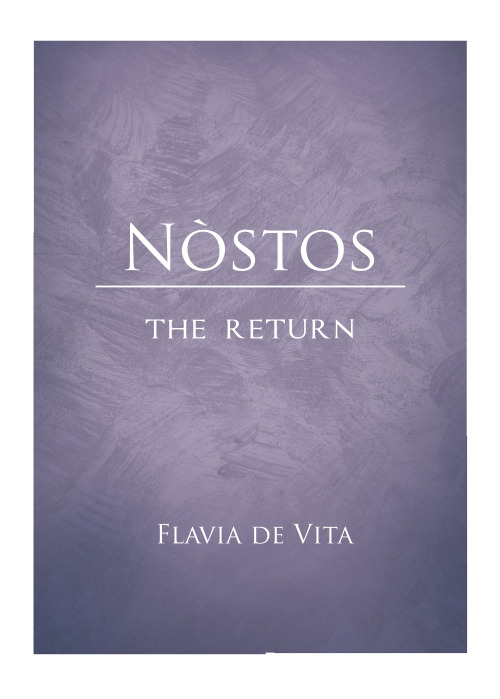
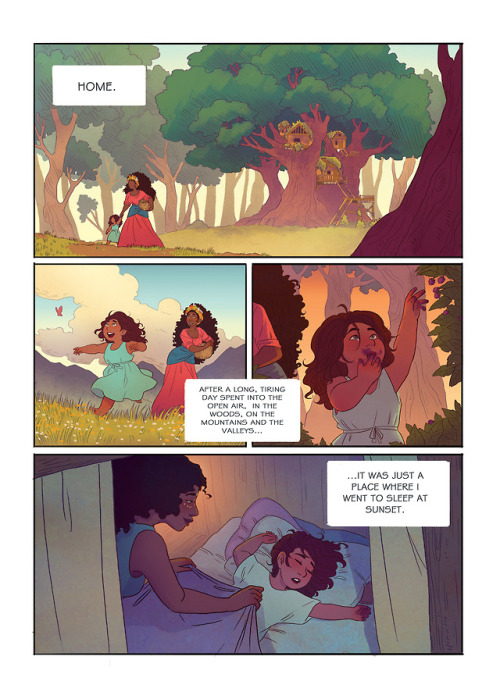
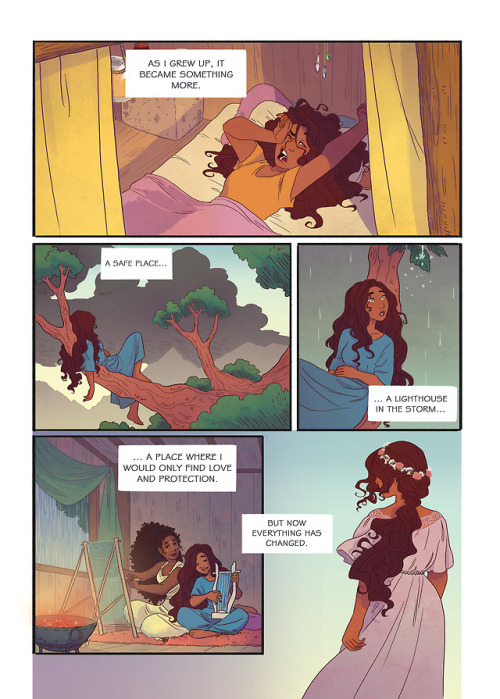
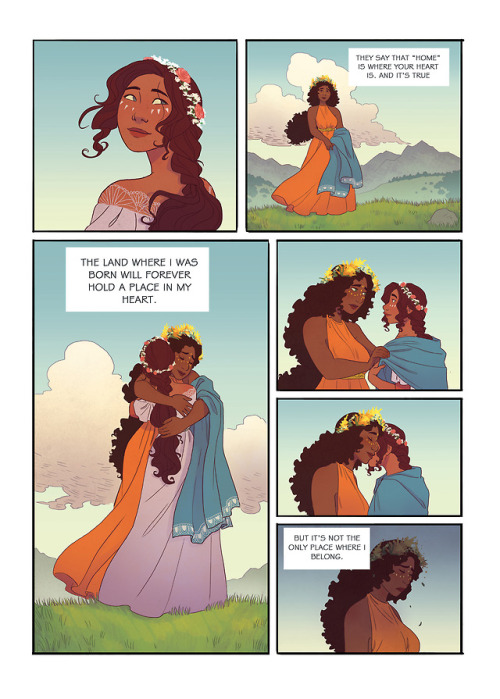
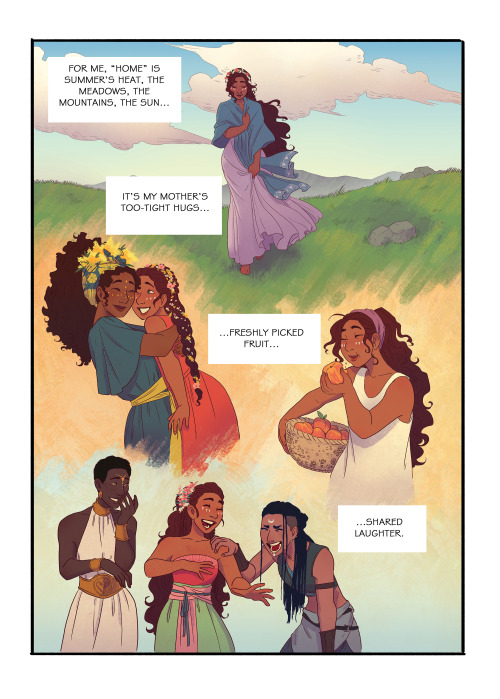
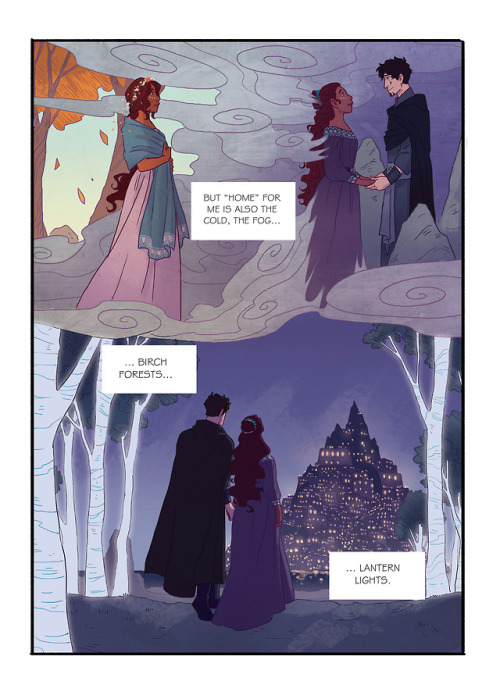
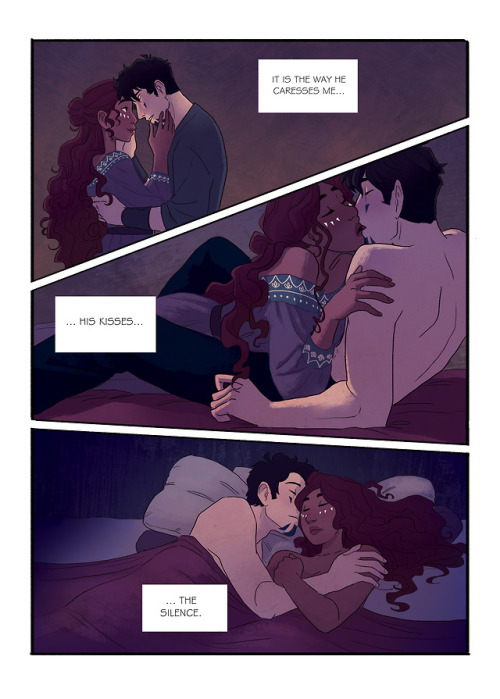
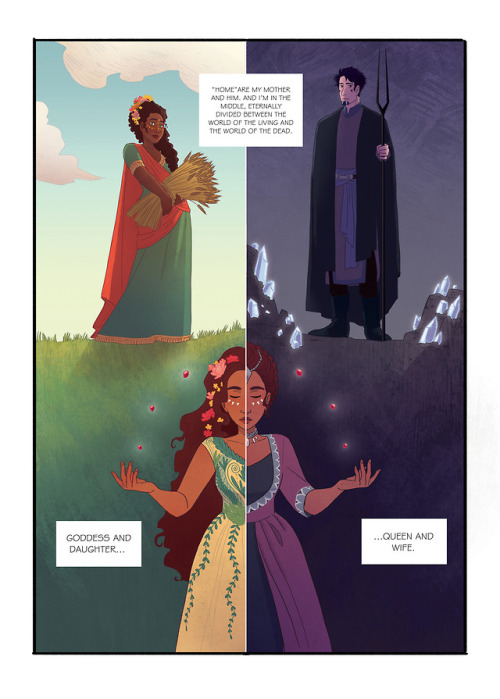
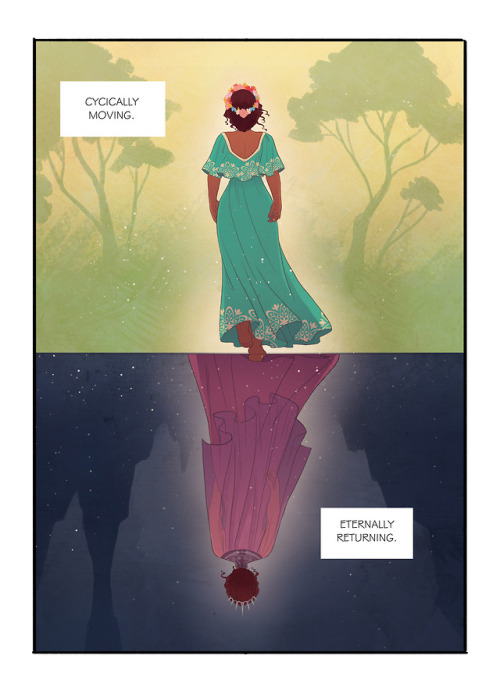
A short story I wrote this summer.
Heres a google drive folder filled with art book pdfs, if anyone has some others that you'd like me to add to it thats missing, please let me know and send me the link
How to Write Political Intrigue (with book recs)
POLITICAL INTRIGUE! Intrigue in general! What is it?
For the purposes of this post (as well as how it's usually used in the writing/reading community), think: scheming. Plotting. Conspiracies in the shadows, bids for power and survival, secret plans, masterful illusions, all of that stuff.
It could be on any scale that you'd like, from a duel of wits (think Light's and L's game of cat and mouse in Death Note)
...to a large-scale plot involving entire countries and their people (like any espionage networks during any major wars, such as the American Revolutionary War to World War II, and so many more)
...or even medium-sized conflicts (families, like in The Godfather, or smaller national disturbances like the Watergate scandal).
Below are 4 core tips on how you can successfully write (political) intrigue plots:
1. Read + Research
Despite how hard it may sound, it's actually pretty easy to craft a realistic yet thrilling intrigue plot—with so many examples in real life and fiction, you can easily base your plot on an existing one and just change a few things like the characters, setting, and maybe a few plot points.
History and current events are always great places to look to, but here are some books that are chock-full of great politics + intrigue:
Leviathan (Thomas Hobbes): one of the most famous treatises of politics + human nature and their intersection. The book is an in-depth exploration of human nature, government, politics, and all of the root causes of why they exist. While it does take a specific philosophical angle (you might not agree with Hobbes' ideas), they are detailed explanations of how things work + why they are required from one perspective.
48 Laws of Power (Robert Greene): GREAT BOOK for helping you plan out the means by which you want the intrigue to happen. There are lots of simplified rules that tell you why people plan and scheme (e.g. "control the options; get others to play the cards you deal," or "pose as a friend, work as a spy"). There are LOTS of really great small stories of when a rule is applied in real life that are also general plot inspo!
The Godfather (Mario Puzo): very very good, intricate, and more emotional because it deals with the intrigue surrounding families
Joseph Fouché: Portrait of a Politician (Stefan Zweig) (biography): Fouché is absolutely insane. A genius at political intrigue. His life is literally one of the craziest stories of scheming, betrayals, survival, and a general vying for power, especially behind the scenes.
The Prince (Machiavelli): obviously, I can't leave out the original tips + tricks book with explanations of WHY intrigue matters as a means, especially in terms of protecting your power.
Trust Me, I'm Lying (Ryan Holladay): a large part of intrigue plots (you need to cover up the actual game you're playing) is the manipulation of information, creating illusions and spectacles for other people to believe. This book goes in-depth about media manipulation and information wars.
Empire of Pain (Patrick Raden Keefe): takes a rather different angle, through the personal/corporate manipulation of government, as well as how wealth dynasties (especially within families) are established. Remember the opioid crisis? This book explores the generational politics of money and power that led up to that.
Prince of Thorns (Mark Lawrence): Look! Fiction! Anyway, I'm biased because it's one of my favourite works of fiction of all time, but it explores political intrigue not only through an actor participating in it, but through the lens of the common folk. I.e., the consequences all that power play has on the populace due to a lack of actual good governance...
A Song of Ice and Fire (George R. R. Martin): I haven't personally read/watched anything GoT, but it's pretty much obligatory to put this series down in a post about political intrigue. It's famous for doing it well.
2. Plan. Like, meticulously
First of all, decide what scale you want your intrigue to be on: large-scale government/international affairs type, a corporation thing, something between two people, or even within a family? There are so many possibilities.
Intrigue plots are like mysteries; they must be tightly logical to be satisfying. One of the best ways of ensuring this is through analyzing each involved party—the actors.
Each actor has their own motivations, goals, and psychologies. After you establish what they want OUT of their intrigue, think about how they'd go about achieving it: a naturally hot-headed person might try to intimidate their way into getting what they want, or they might learn through the course of the story to cool down a bit.
A naturally imaginative and analytical person might come up with all sorts of scarily genius plans, and near-flawless execution. Of course, they would also react in different ways, depending on personality. Character consistency alone will make your plot seem that much more logical.
However, cracks in logic will happen because humans are inherently imperfect and not always rational. These cracks must be DELIBERATE and realistic and must seem planned out; they can't seem more like the author forgot a detail, or didn't know how to explain something (e.g. something happened and the writer never included the consequence of it because they forgot). It must be clear that it is a flaw on the character's part.
3. Never write intrigue for the sake of the intrigue
The incentive of all scheming comes down to mainly two things: gaining power and keeping it. Of course, you could choose to explore more unusual things, such as characters exercising intrigue to satisfy boredom... (think Light and Ryuk from Death Note).
But, the bids for power, security, and survival can be used to highlight things about human nature. Themes to explore include ambition, sacrifice, the pursuit of happiness, the corruption of character, the preservation of innocence in a cruel system, etc.
4. Explore through a narrow lens
Most intrigue plots are full of complex motivations, characters, goals, and the means they use to achieve said goals.
You should gradually let your intrigue plot unfold through the POV of a few characters, preferably one or two. An omniscient narrator for this type of story is INCREDIBLY difficult to pull off without confusing the reader.
However, more POVs work if you use all of them to focus on ONE or a few intrigue plots only—it can provide a multi-layered effect, exploring the same line of action and consequence through different perspectives. But, if everyone has their own intrigue plot, it's too easy to create a tangled mess where readers can barely delineate one plot from the next.
∘₊✧────── ☾☼☽ ──────✧₊∘
instagram: @ grace_should_write
Sorry for the massive hiatus—I have officially started college!! I've been pre-occupied with settling in, classes starting, a social life, extracurriculars etc. etc...life has been super busy, but great :)
I've started working on my books as well as poetry more recently, and I'm glad I'm getting into a new workflow/lifestyle. It certainly is different, but I'm starting to enjoy it.
Anyway, I'm surprised it took me this long to do a post about this topic, considering the fact that it's basically my writergram niche and my entire personality IRL, but I think it was mainly because I was trying to find a good angle to approach this massive topic. But, stay tuned for (probably) a part 2 because there's SO MUCH MORE to cover.
Hope this was helpful, and let me know if you have any questions by commenting, re-blogging, or DMing me on IG. Any and all engagement is appreciated :)
Happy writing, and have a great day!
- grace <3
things people do in real world dialogue:
• laugh at their own jokes
• don’t finish/say complete sentences
• interrupt a line of thought with a sudden new one
• say ‘uh’ between words when unsure
• accidentally blend multiple words together, and may start the sentence over again
• repeat filler words such as ‘like’ ‘literally’ ‘really’ ‘anyways’ and ‘i think’
• begin and/or end sentences with phrases such as ‘eh’ and ‘you know’, and may make those phrases into question form to get another’s input
• repeat words/phrases when in an excited state
• words fizzle out upon realizing no one is listening
• repeat themselves when others don’t understand what they’re saying, as well as to get their point across
• reply nonverbally such as hand gestures, facial expressions, random noises, movement, and even silence
World Building 101
World building! How many other hobbies or careers involve creating an entire world all your own? Not many.
There’s nothing quite like setting out to create your fictional world. Drawing maps, deciding which civilizations live where, throwing in crazy kinds of solar systems and vegetation if you’re really going all out… it can be a ton of fun.
However, one of the writer’s most exciting tasks is also one of their most intimidating.
On one hand: you get to build your own world. On the other hand… you have to build your own whole entire WORLD?! Where do you even start??
Well, you can start right here. Today I’m going to walk you through some basic pointers to get your world up and running.
World Building and World Building
Right off the bat, you should be aware that there are two kinds of world building. There’s the large-scale fantasy world building which I will be talking about today, and there is also world building that goes into other story genres.
Every writer is going to do some level of world-building, whether you’re painting a verbal picture of the lake your character goes to to get some peace of mind, pulling a reader into an important event and making them feel like they’re actually attending, or creating a whole new planet for your space pirate to fly to.
The Top 6
When you have a massive task ahead of you it’s always best to start by breaking it down. So, let’s take a look at the top 6 features you’re going to be focusing on when building your world.
WHO
Ask yourself: who lives in your world?Most likely there is a variety of species and races. Or, you could decide on a world where every creature is exactly alike — it is of course, your world.
Do the creatures of your planet have different cultures or are these homogeneous?
It will be easiest to start off with your main characters and work out from there. What is their species and race, and what does their culture look like?
For each species in your world, jot down the following:
Species name
Race names
Physical description
Language
Cultural notes
Special abilities
WHAT
Ask yourself: what social structures exist in your society? Again, start with your main characters and work out from there. For each species within your world, you’re going to need to determine how they manage their society.
What beliefs do they have? Are they religious, or more philosophical? Is there a divide between the two? What do their political structures look like? How strict are their laws?
You’ll want to consider trade and economy as well. Do they have a money system? A barter system?
You may not need to go too in depth with every single species in your world, but you’ll want a basic note or two about each in case it comes up in your writing.
For each species in your world, decide at least one point about each of the following:
Religion
Philosophies
Politics and laws
Economy
WHERE
Ask yourself: where does your species exist?Finally, we get to the physical world of your world building. What is the geography like? The biomes? Is your world bountiful with resources or is it a dying planet with species’ in desperate search of new sustenance?
For some writers, they will take years fleshing out the ‘where’ of their world, including the cosmos surrounding it. For others, a map with the basic locations of the story will suffice. It is up to you how in-depth you would like to go.
At the very least, you should outline one or two notes about each of the following:
Solar system (does your world exist near ours or is it completely fabricated?)
Geography (this one can be split per species — forest elves live in the woods, nymphs live near the sea, etc.)
Biomes (split by species region)
Resources (split by species region)
WHEN
Ask yourself: when do the events of your story occur?The story you are telling may be the main focus of your book, but what happened to lead up to it? What has your main character’s species and world been through that is causing the story to occur? Even if the events of the world do not impact your story much, they will have had at least some level of ripple effect that reflects on your characters’ day-to-day. Was this civilization a warring one and the story takes place in a broken society? Or, has their society reached its peak of enterprise?
For each region in your world, establish the following:
Founding events
Defining events
Recent events
(if relevant) Future events
WHY
Ask yourself: why do the species in your world behave as they do?The why of your story will tie in with many of the previous points you’ve outlined, but it gets more to the point in a way that can directly apply to your story and characters. Why are things happening as they are today? What evolution did this society go through? Do they share common goals now or are your characters going against the grain of their people? What conflicts exist in this world, and is your main character involved in those conflicts or attempting to avoid involvement?
A few pertinent notes to take per species would be:
Social evolution
Societal goals
Societal conflicts
HOW
Ask yourself: how do the species in your world solve problems? In the category of ‘who’, you will have outlined your main characters’ abilities. These could be magical or technological or maybe they are super strong, or super smart. Now, you can get deeper into the magical or technological systems of your world. Start with your main characters and work outwards. Is everyone magical here? Do different species and races have different abilities? Is there a human or human-related race, and at what point are they at with their technology?
Figure out the following (for each species and race if applicable):
Magic abilities
Technological advancements
Scientific knowledge
Militaristic power
The World is yours: Command it
An author with a strong command of the world they are writing within will have at their fingertips an endless landscape of possibility. Look to authors such as J.R.R. Tokien or George R.R. Martin — it’s no wonder their works are so successful. They perfectly encapsulate what fantasy readers are looking for in a novel: escapism. The worlds don’t need to be pretty, they need to be fully formed; realistic in their mysticism.
World-building can seem like a lot of work, and it is. But do it bit by bit, and try to keep it fun. Don’t sit down in one day expecting to create your whole world. It’ll take time. But that time spent will be well worth it in the end!

TO WRITE CHAPTERS AND DRAFTS: “THE PAGES”
a highly customizable, simplistic but fancy googledoc for writing chapters and drafts, perfected for writers. a dark-mode version to please the eyes. to download / copy, go to file and click “make copy” to copy it to your gdrive.
features:
overview / introductory page with a section for ideas
dark-mode
table of contents for chapters
sub-headers to accompany main headers
bookmark system as navigation
aesthetically constructed layout to write your chapters in (2 columns)
please like / reblog if you’re using or interested in using it!
if you’re interested in more, check out the all-in-one gdoc “the book” here. dm me for requests.
-
 uniquesmalltreasures reblogged this · 2 months ago
uniquesmalltreasures reblogged this · 2 months ago -
 tinyshinyunique liked this · 2 months ago
tinyshinyunique liked this · 2 months ago -
 cheezycheezit1989 liked this · 3 months ago
cheezycheezit1989 liked this · 3 months ago -
 0vix0 liked this · 4 months ago
0vix0 liked this · 4 months ago -
 ambarified-central liked this · 4 months ago
ambarified-central liked this · 4 months ago -
 tianakoopa reblogged this · 4 months ago
tianakoopa reblogged this · 4 months ago -
 tianakoopa liked this · 4 months ago
tianakoopa liked this · 4 months ago -
 1mothrafan liked this · 4 months ago
1mothrafan liked this · 4 months ago -
 lolistica liked this · 4 months ago
lolistica liked this · 4 months ago -
 pinklushdreams liked this · 5 months ago
pinklushdreams liked this · 5 months ago -
 soratired liked this · 5 months ago
soratired liked this · 5 months ago -
 ailurorah liked this · 6 months ago
ailurorah liked this · 6 months ago -
 neverrrrrrrmind liked this · 6 months ago
neverrrrrrrmind liked this · 6 months ago -
 sundreaminstorybrooke liked this · 6 months ago
sundreaminstorybrooke liked this · 6 months ago -
 asunnyday liked this · 6 months ago
asunnyday liked this · 6 months ago -
 eggbagelpanacea liked this · 6 months ago
eggbagelpanacea liked this · 6 months ago -
 sinaaihwart liked this · 7 months ago
sinaaihwart liked this · 7 months ago -
 eternalnightingale liked this · 7 months ago
eternalnightingale liked this · 7 months ago -
 idkimnewherelol liked this · 7 months ago
idkimnewherelol liked this · 7 months ago -
 qwerty1111texttx liked this · 8 months ago
qwerty1111texttx liked this · 8 months ago -
 judasisdrafting liked this · 9 months ago
judasisdrafting liked this · 9 months ago -
 boringinternetstuff liked this · 10 months ago
boringinternetstuff liked this · 10 months ago -
 kohitsuji liked this · 10 months ago
kohitsuji liked this · 10 months ago -
 hewwodarkness reblogged this · 10 months ago
hewwodarkness reblogged this · 10 months ago -
 mor4l3 liked this · 10 months ago
mor4l3 liked this · 10 months ago -
 astraerystarr liked this · 10 months ago
astraerystarr liked this · 10 months ago -
 thusspoketrish liked this · 10 months ago
thusspoketrish liked this · 10 months ago -
 livy-356 liked this · 11 months ago
livy-356 liked this · 11 months ago -
 devilsrose666 liked this · 11 months ago
devilsrose666 liked this · 11 months ago -
 quartz26x liked this · 11 months ago
quartz26x liked this · 11 months ago -
 quartz26x reblogged this · 11 months ago
quartz26x reblogged this · 11 months ago -
 zanetheavocado liked this · 11 months ago
zanetheavocado liked this · 11 months ago -
 apinchofm liked this · 11 months ago
apinchofm liked this · 11 months ago -
 rubybleach liked this · 11 months ago
rubybleach liked this · 11 months ago -
 badfanfictionandstuff liked this · 11 months ago
badfanfictionandstuff liked this · 11 months ago -
 geminanvaju liked this · 11 months ago
geminanvaju liked this · 11 months ago -
 exhaustedoctopusstuff reblogged this · 11 months ago
exhaustedoctopusstuff reblogged this · 11 months ago -
 exhaustedoctopusstuff liked this · 11 months ago
exhaustedoctopusstuff liked this · 11 months ago -
 miss-jades-fics liked this · 11 months ago
miss-jades-fics liked this · 11 months ago -
 panopticonpancakes liked this · 11 months ago
panopticonpancakes liked this · 11 months ago -
 warriorwolf62122 liked this · 11 months ago
warriorwolf62122 liked this · 11 months ago -
 stellaluna-arts liked this · 11 months ago
stellaluna-arts liked this · 11 months ago -
 noisyenemypeace reblogged this · 1 year ago
noisyenemypeace reblogged this · 1 year ago -
 noisyenemypeace liked this · 1 year ago
noisyenemypeace liked this · 1 year ago -
 fckthishitrn liked this · 1 year ago
fckthishitrn liked this · 1 year ago -
 wutguycreations liked this · 1 year ago
wutguycreations liked this · 1 year ago -
 penguinsweaters liked this · 1 year ago
penguinsweaters liked this · 1 year ago
